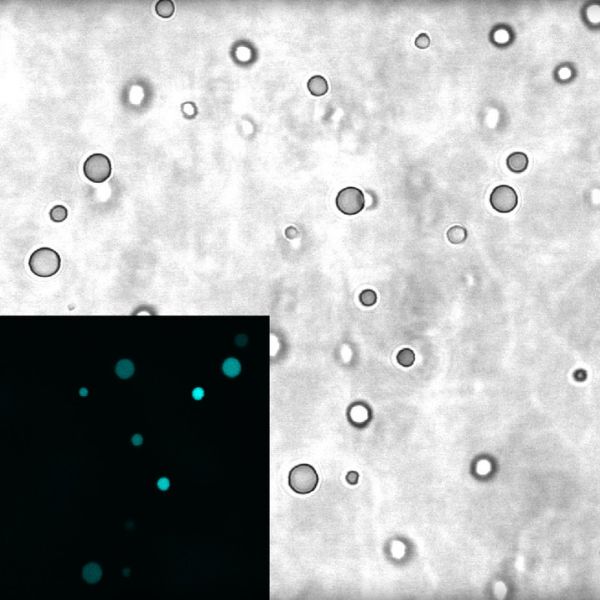News

Apr 03, 2019
Michael Axtell Among Five Receiving Faculty Scholar Medals
Five Penn State faculty members have received 2019 Faculty Scholar Medals for Outstanding Achievement for excellence in scholarship, research and the arts.
Full Article

Feb 01, 2019
Membraneless protocells could provide clues to formation of early life
Membraneless assemblies of positively- and negatively-charged molecules can bring together RNA molecules in dense liquid droplets, allowing the RNAs to participate in fundamental chemical reactions. These assemblies, called “complex coacervates,” also enhance the ability of some RNA molecules themselves to act as enzymes — molecules that drive chemical reactions.
Full Article
Apr 02, 2017
Paul Babitzke elected as Fellow of the American Academy of Microbiology
Paul Babitzke, professor of biochemistry and molecular biology at Penn State, has been elected as a Fellow of the American Academy of Microbiology.
Full Article
Aug 04, 2014
Scientist uses giant spectrometer to search for cure for cancer
Working with the ScholarSphere " essentially a gigantic MRI on stilts " Scott Showalter is moving closer to the biomedical breakthrough he so desires: to help find a cure for cancer.
Full Article
Jul 01, 2014
NSF grant will help create beneficial biofilms on water purification membranes
A team of chemical engineers at Penn State that includes Huck Institutes faculty researcher Thomas Wood has received a three-year, $400,000 National Science Foundation grant to help prevent biofouling of reverse osmosis (RO) membranes.
Full Article
May 29, 2014
Probing Question: Could polio make a comeback?
Melissa Beattie Moss talks with Craig Cameron about the possibility of another polio epidemic.
Full Article
Dec 19, 2013
DNA study gives insight into the evolution of food crops, other flowering plants
New light has been shed on a major event in the history of life on Earth the origin of all major food crops and all other flowering plants with the publication of the newly sequenced genome of the Amborella plant by researchers including Huck Institutes faculty members Claude dePamphilis, Hong Ma, Stephan Schuster, Naomi Altman, and Michael Axtell, and graduate student Saima Shahid.
Full Article
Dec 03, 2013
New tool developed for profiling critical regulatory structures of RNA molecules
A research team led by Huck Institutes affiliates Sarah Assmann and Philip Bevilacqua has developed a molecular technique that will help the scientific community to analyze on a scale previously impossible molecules that play a critical role in regulating gene expression.
Full Article
Oct 14, 2013
Turning biologists into programmers
Research by Huck Institutes affiliate Howard Salis demonstrates how synthetic life could create real benefits.
Full Article
Aug 28, 2013
Researchers track antibiotic-resistant strains of Salmonella from farm to fork
Continuing research on Salmonella may enable researchers to identify and track strains of antibiotic resistant bacteria as they evolve and spread, according to researchers including Huck Institutes affiliate Edward Dudley in Penn State's College of Agricultural Sciences.
Full Article